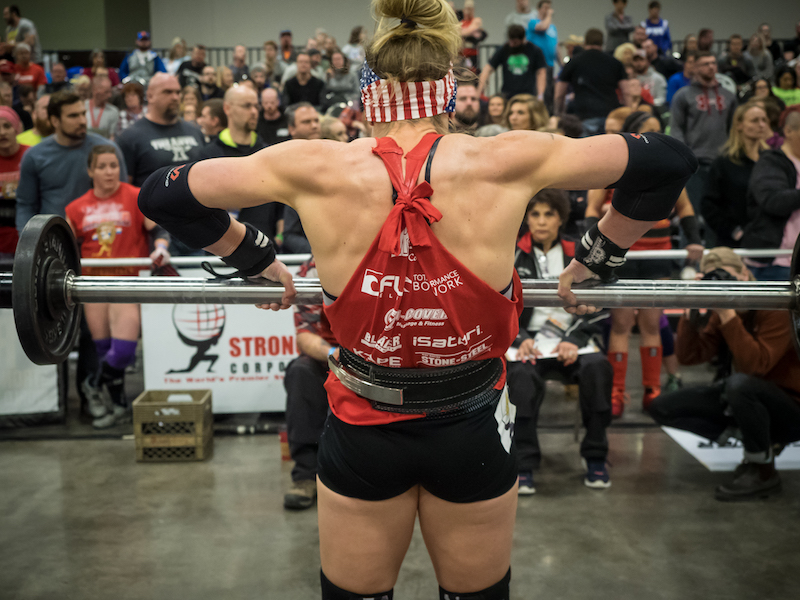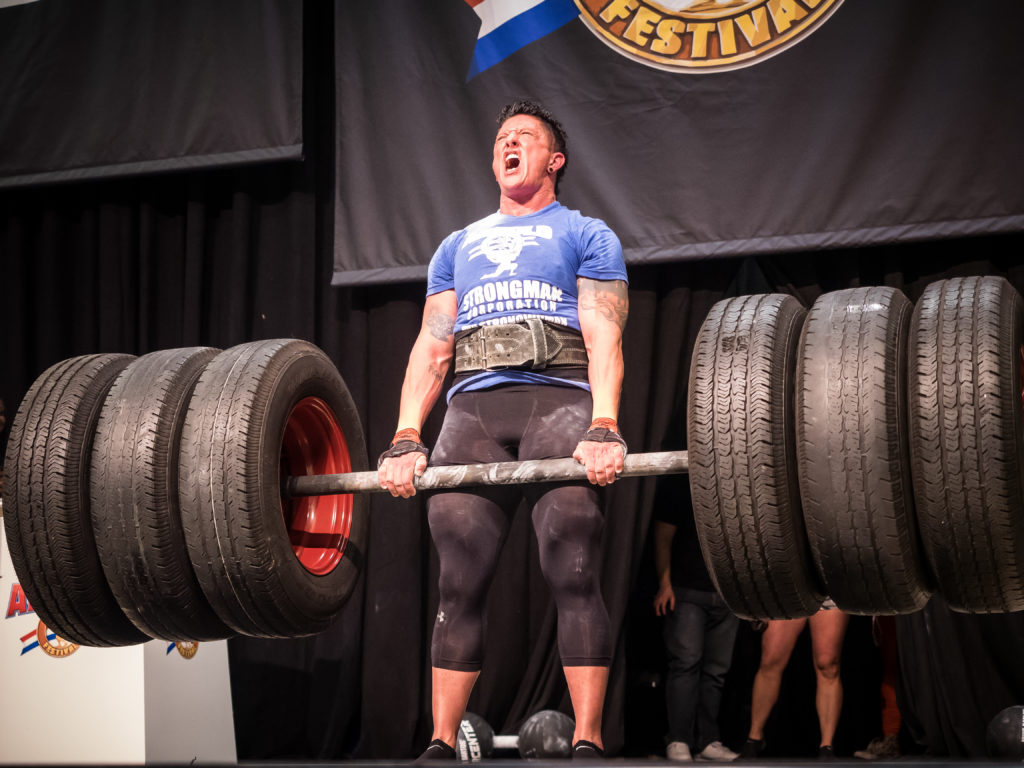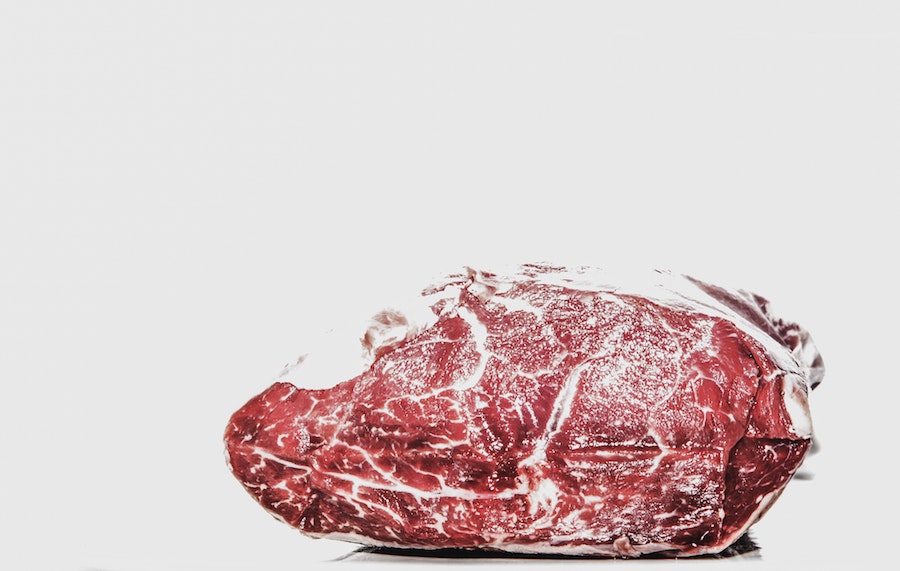A gram per kilogram of bodyweight. A gram per pound of bodyweight. Fifty grams per day for everyone, that’s what the FDA recommends. Why is it so hard to agree on how much protein you need to consume?
A lot of it has to do with the fact that protein is essential for building muscle, a lot of people want as much muscle as possible, so it stands to reason that they should consume as much protein as they can stomach.
But of course, biochemistry isn’t quite so “reasonable” and the body is more complicated than “If hitting the recommended intake of this intake does that, then eating ten times that amount would be ten times the benefit!” (That’s why vitamin toxicity is a thing. Even too much broccoli can be bad for your thyroid. But we digress.)
Let’s grind this beef: what’s the ideal amount of protein to eat per day?
Editor’s note: The content on BarBend is meant to be informative in nature, but it should not be taken as medical advice. The opinions and articles on this site are not intended for use as diagnosis, prevention, and/or treatment of health problems.
It’s One Gram Per Pound of Bodyweight, Right?
OK, we need to contextualize this. There’s the amount of protein you need to function (the FDA’s 50-gram guideline), the amount of protein you need to gain or retain muscle, and of course your protein needs vary depending on your activity, body composition, and age.
The old “gram per pound” rule is easy to remember but probably inaccurate. A lot of research has suggested that the ideal minimum intake for muscle gain is more like 1.6 grams per kilogram of bodyweight, or 0.72 grams per pound. Perhaps the most influential paper on this was published by the American Dietetic Association, Dietitians of Canada, and the American College of Sports Medicine in 2009, all of whom suggested somewhere between 1.2 and 1.7 grams per kilogram for active individuals.(1)
“The 1.6 grams is your floor, essentially that’s your target to hit,” says Brian St. Pierre, MS, RD, the Director of Performance Nutrition at Precision Nutrition. “If your goal is muscle gain, the evidence doesn’t really suggest that eating more protein than that helps you gain more muscle but what it does to tend to show is that eating more than that may help to mitigate fat gain.”

Part of this has to do with the thermic effect of food: you burn more calories just by digesting protein than you do carbs and fat. A 2004 study in Nutrition and Metabolism found that the thermic effect of protein is 20 to 30 percent, carbs are 5 to 10 percent, and fat 0 to 3 percent.(2) That’s not the only reason you might reduce fat gain by going higher protein, but to be honest, we may not yet fully understand the mechanisms.
“When people hear that, however, they’ll go protein crazy and won’t eat enough carbs or fat to meet their activity levels,” cautions St. Pierre. “That’s when you can have trouble, because they’re not eating enough carbs to maintain activity or enough fat to maintain hormone status. So you can have more carbs and fat.”
He points to a pretty highly regarded 2014 study by Dr. Jose Antonio in the Journal of the International Society of Sports Nutrition, that found that giving athletes 4.4 grams of protein per kilogram of bodyweight wasn’t any better for body composition.(3) Carbs and fat are important, too.

Now, how much carbohydrate and fat should make up the rest of your macros is beyond the scope of this article but you should remember that eating a lot of excess calories will cause fat gain and not eating enough carbs or fat will hamper your mood, performance, and recovery. Keeping all that in mind should keep you from going too nuts on the protein.
If all that sounds a little vague, it’s worth emphasizing that research is still a little conflicting on this. If you’re in caloric excess and really aiming to gain a lot of muscle as fast as possible, that old gram of protein per pound of bodyweight schtick might indeed be a good rule of thumb. That said, it’s very unlikely that you’ll be able to gain more than a two pounds of muscle per month and pushing your calories higher than what you’d need for that target will likely bring some body fat along for the ride.
But if you need hard numbers: 1.6 grams per kilogram of bodyweight is perfectly good, and more than 2.2 grams is probably unnecessary.

Image via U.S. Air Force/Staff Sgt. Joshua Garcia
But What If I’m a Serious Bodybuilder?
Are you a stage-ready bodybuilder, or do you just kinda wish you were a stage-ready bodybuilder? Because the recommendations above will work just fine for the vast majority of people and body composition goals, even serious athletes. If you aren’t that lean, it doesn’t make sense to eat like you are.
But let’s say you are. If you have a very significant amount of muscle mass you want to preserve while shedding fat? Yeah, there’s a chance that even more protein might be smart.
“There’s not a ton of evidence but there is some research on bodybuilders and muscular people who are already quite lean and are looking to lean out, they actually have a higher protein need in order to maintain that muscle mass,” says St. Pierre. “It looks like 2.2 grams to 3.3 grams per kilogram of bodyweight. If you’re a man who’s like 15 percent body fat, you don’t need that high end. If you’re under ten percent? Your protein needs are increasing.”
He’s right that a lot of this data is anecdotal, but there was a 2014 paper published in the Journal of the International Society of Sports Nutrition that had a similar conclusion:
most but not all bodybuilders will respond best to consuming 2.3-3.1 g/kg of lean body mass per day of protein, 15-30% of calories from fat, and the reminder of calories from carbohydrate.(4)
A randomized trial from the American Journal of Clinical Nutrition also found that more protein might be better during fat loss: in a big (40 percent) calorie deficit, participants taking 2.4 grams of protein per kilogram of bodyweight retained more muscle and lost more fat than those taking 1.2 grams.(5) Those guys weren’t bodybuilders, but the point is more protein might be more important when cutting.
Now remember that these recommendations still start at about a gram per pound of bodyweight — a pretty standard recommendation for anyone, albeit it higher than the 1.6 grams per kilo recommended for maintaining or gaining. But it may behoove you to make sure your intake doesn’t fall below the 1 gram per pound if you’re super duper lean.
[If gaining size is your goal, you’ll need calories and you might consider supplements — take a look at our picks for the 7 best mass gainers you can choose from!]

How Much Protein Should I Eat Per Serving?
If you’ve decided you need 150 grams of protein a day, you might be wondering if it’s better to consume protein every hour or to further space it out throughout the day.
This can lead us into a discussion about intermittent fasting and nutrient partitioning that’s a little outside the scope of this article. However a lot of research, like a 2012 paper in Journal of Physiology, suggests that if you want to maximize your muscle protein synthesis — that’s a process that switches on genes responsible for muscle gain — you should aim for a good three grams of the amino acid leucine per serving.(5) You’ll get that in about 30 grams of quality protein. (Whey is super high in leucine, so you probably just need 20 grams of that.)
That’s what you appear to need to keep up muscle protein synthesis, but it really bears emphasizing that there’s a lot more to gaining muscle than muscle protein synthesis or even protein intake in general: your calories, macronutrients, micronutrients, sleep, and training all need to reflect your goals as well. Protein timing is a relatively small part of a very complex puzzle.
[Learn more: How much protein can I absorb at once? ]

How Much Protein for People Over 50?
It’s also worth remembering that it’s harder to gain muscle as you age. You already knew that, but this “anabolic resistance” means that protein requirements may increase if you want to keep up muscle protein synthesis.
Two studies, published in The Journal of the American College of Nutrition and Nutrition & Metabolism, looked at men with an average age of 71 and found that they required larger servings of protein when compared to younger guys to get the same muscle protein synthesis.(6)(7) It was suggested while younger folks can trigger it with 20-ish grams of protein, older guys may want to ensure they’re eating at least 40 grams.
And when it comes to overall daily intake?
“Between 1.2 and 1.6 grams per pound of bodyweight seems to be sufficient, that’s where the evidence stands right now,” says St. Pierre. “It’s pretty much a good catchall for any age but at 50 and over, 1.6 grams per pound is particularly important because you start losing muscle mass once you hit your thirties. If you exercise and eat the level of protein we’re talking about, it’ll help attenuate that muscle loss.”
So the overall daily intake may not change all that much, but it appears that larger meals may be a better idea as you age.

The Final Word
Don’t get too lost in the weeds.
As St. Pierre notes, the fitness industry likes to use words like “avoid” and “must” when talking about protein intake and while some find it motivating, it can easily become demoralizing when you miss your goal.
“In reality, it’s about hitting those goals 80 percent of the time,” he says. “If you want to get on stage it’s a different story. If your livelihood depends on it, it’s a different story. But for most people it’s about not making perfection the enemy of progress.”
If you actually are a full time athlete then hitting your macros to the milligram may be worth the stress, and even then it’s a maybe. For everyone else, it really isn’t. Eat well, but don’t lose your head.
References
1. Rodriguez NR, et al. Position of the American Dietetic Association, Dietitians of Canada, and the American College of Sports Medicine: Nutrition and athletic performance. J Am Diet Assoc. 2009 Mar;109(3):509-27.
2. Westerterp KR. Diet induced thermogenesis. Nutr Metab (Lond). 2004 Aug 18;1(1):5.
3. Antonio J, et al. The effects of consuming a high protein diet (4.4 g/kg/d) on body composition in resistance-trained individuals. J Int Soc Sports Nutr. 2014 May 12;11:19.
4. Helms ER, et al. Evidence-based recommendations for natural bodybuilding contest preparation: nutrition and supplementation. J Int Soc Sports Nutr. 2014 May 12;11:20.
5. Breen L, et al. Leucine: a nutrient ‘trigger’ for muscle anabolism, but what more? J Physiol. 2012 May 1;590(9):2065-6.
6. Yang Y, et al. Myofibrillar protein synthesis following ingestion of soy protein isolate at rest and after resistance exercise in elderly men. Nutr Metab (Lond). 2012 Jun 14;9(1):57.
7. Phillips SM, et al. The role of milk- and soy-based protein in support of muscle protein synthesis and muscle protein accretion in young and elderly persons. J Am Coll Nutr. 2009 Aug;28(4):343-54.